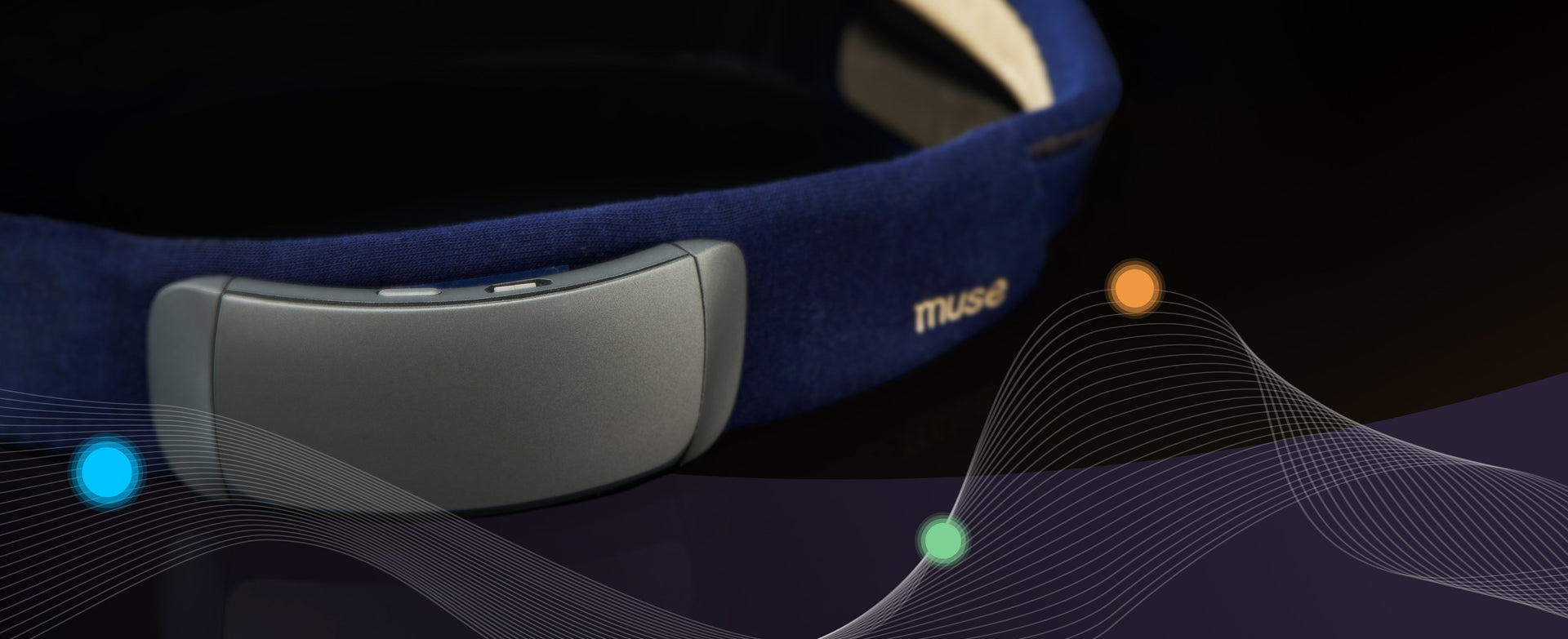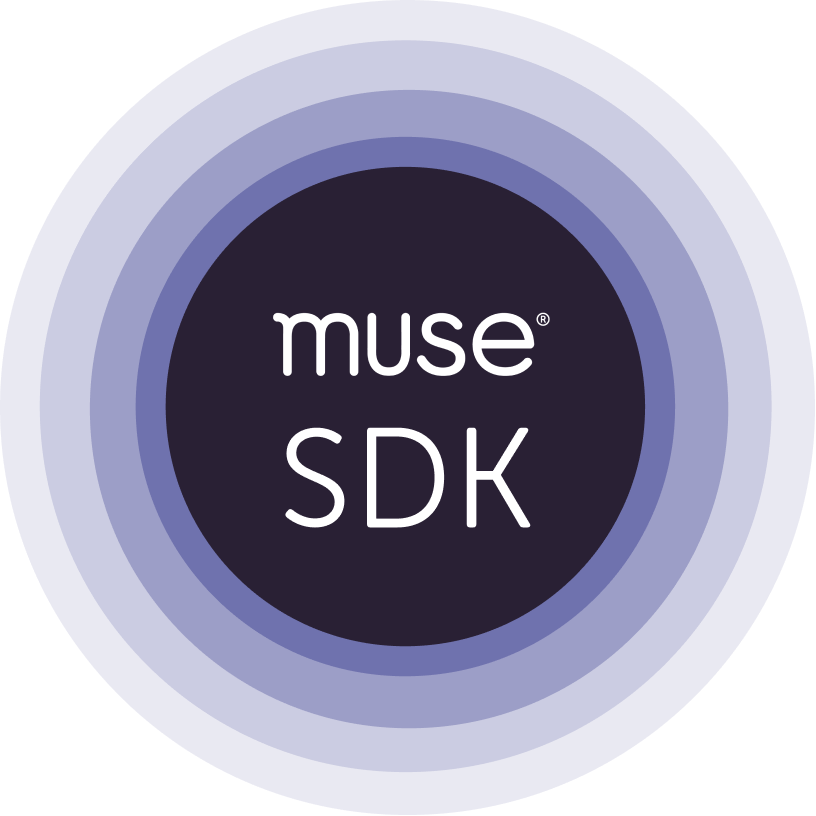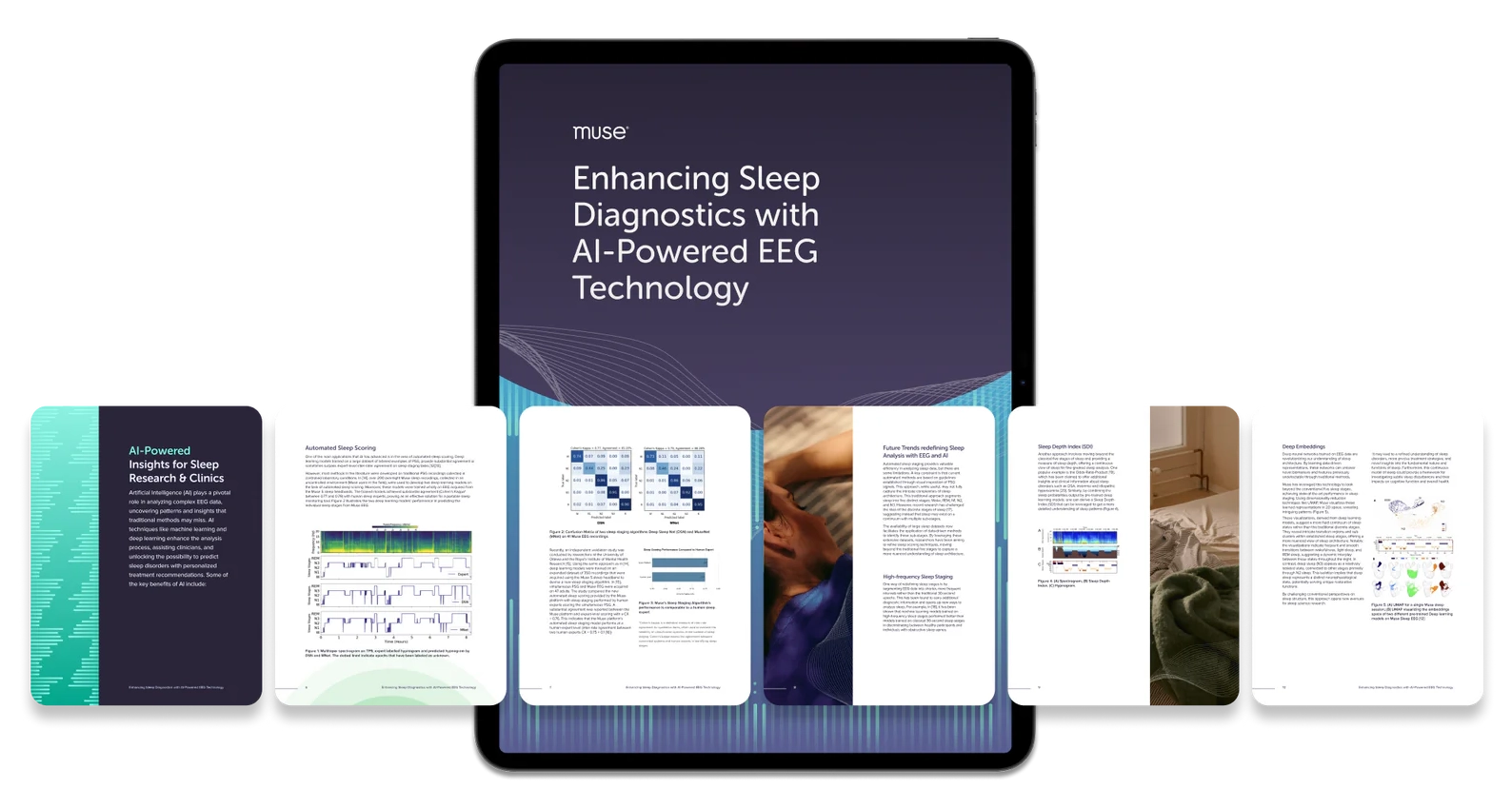
Backed by research from prestigious institutions
REGISTER FOR API ACCESS
Develop your own app using Muse’s SDK—handling Bluetooth connectivity, async data, and raw EEG/PPG/accelerometer streams. Includes .muse file support, simulated playback, and logging tools.
Available for iOS & Android; Windows, Unity & Unreal coming soon.

CONDUCTING RESEARCH WITH MUSE?
Researchers: request access to our validated, peer-reviewed EEG tools and study protocols.
THE POWER OF EEG TECHNOLOGY
EEG tracks electrical brain activity in real time, revealing patterns linked to consciousness, sleep, cognition, and neurological health. Once lab-bound, this tech is now portable and accessible for clinical and field research.
ACCURACY AT SCALE
Muse delivers research-grade EEG validated in applications like stress, anxiety, stroke, MCI, and sleep. Trusted by clinicians and scientists globally.
BIOFEEDBACK TRAINING MEETS MEDITATION
Biofeedback training, especially when linked with meditation, is an effective method that helps users gain more control over their body’s and brain’s functions and responses.
Here's how it works: Muse gives users real-time audio feedback on their brain activity to reinforce an optimal meditative state. Muse measures the user's brainwave patterns, heart rate, and breathing then gives them real-time audio.
Feedback on their mental state to let them know when they’re in the zone.
Over time, this can improve their ability to focus, reduce stress, and enhance self-awareness.
AI-ENHANCED SLEEP DIAGNOSTICS
Advancing Sleep Research with Foundation Model EEG
- Validated sleep staging (Cohen’s Kappa: 0.76)
- Applications in long COVID, migraine, and cognitive aging
- Introduction to Alpha Peak, Brain Recharge & AI-driven sleep metrics
- Athena enables real-time, in-home trials using multimodal data streams

RESEARCH HIGHLIGHTS
Muse is featured in 200+ peer-reviewed studies on:
Stress & Anxiety (EEG classifiers, LSTM models)
PTSD & OCD (neurofeedback, mindfulness)
Cognitive Fatigue (rapid ERP, N200 amplitude)
Stroke & MCI (early detection, intervention support)
Stress
Classification of Perceived Mental Stress Using A Commercially Available EEG Headband
Human stress classification using EEG signals in response to music tracks
Stress Classification Using Brain Signals Based on LSTM Network
Human stress classification during public speaking using physiological signals
Perceived Stress Detection through EEG Data Segmentation and Classification
Anxiety
PTSD
Cognitive Fatigue / Impairment
Other Medical Applications
Application of the Muse portable EEG system to aid in rapid diagnosis of stroke
Stroke identification using a portable EEG device – A pilot study
Choosing MUSE: Validation of a low-cost, portable EEG system for ERP research
Characterizing population EEG dynamics throughout adulthood
Validating the wearable MUSE headset for EEG spectral analysis and Frontal Alpha Asymmetry
Automated Sleep Staging on wearable EEG enables Sleep Analysis at scale
Do try this at home: Age prediction from sleep and meditation with large-scale low-cost mobile EEG
Exercising is good for the brain but exercising outside is potentially better
EEG-Based Emotion Classification Using Stacking Ensemble Approach
High-intensity interval exercise impairs neuroelectric indices of reinforcement-learning
Chasing the zone: Reduced beta power predicts baseball batting performance
Robust learning from corrupted EEG with dynamic spatial filtering
Uncovering the structure of clinical EEG signals with self-supervised learning
Deep learning-based electroencephalography analysis: a systematic review
A deep evolutionary approach to bioinspired classifier optimisation for brain-machine interaction
Using portable EEG to assess human visual attention
EEG-based classification of imagined digits using a recurrent neural network
Brain-EE: Brain enjoyment evaluation using commercial EEG headband
A Short Virtual Reality Mindfulness Meditation Training For Regaining Sustained Attention
Player Engagement Classification in Mobile Games Using MUSE Headband
Evaluation of the User Adaptation in a BCI Game Environment
Machine Learning-based Approach for Stroke Classification using Electroencephalogram (EEG) Signals
A predictive method for emotional sentiment analysis by deep learning from EEG of brainwave dataset
A Comparative Analysis of Machine and Deep Learning Techniques for EEG Evoked Emotion Classification
Modulation of Neural Activity during Guided Viewing of Visual Art
Sans Tracas: A Cross-platform Tool for Online EEG Experiments.
NeuroChat: A Neuroadaptive AI Chatbot for Customizing Learning Experiences
RAPID FATIGUE DETECTION
In a 1,000-participant ERP study, Muse assessed cognitive fatigue in under 7 minutes via N200 signals—linking mental load to error rates and real-world risk. A breakthrough in scalable brain-state assessment.